We are led to believe that asylum seekers live in desperate penury as they wait to have their applications processed by the Home Office.
Banned from working or claiming the benefits for which United Kingdom citizens can apply, it is commonly said they are surviving on as little as £8 a week.
Few, certainly, are well off. But, while it is true that asylum seekers have no access to the normal benefits system, there are myriad handouts for which they are in fact eligible – goods and services which, in one way or another, are at least partly funded through our taxes.
Asylum seekers are given housing, for example, and food – both provided directly by the state.
Then there is a network of charities providing a range of benefits, many funded through grants from central government. This week, the absurdity of the system was laid bare as it was revealed that many of those who have come to Britain in small boats are being offered discounted days out on a dinghy.
In fact, our Government spends £2.8 billion a year on supporting asylum seekers and refugees in the UK – a total which makes up 20 per cent of all Britain’s spending on overseas aid.
Here is how some of that large total is spent.
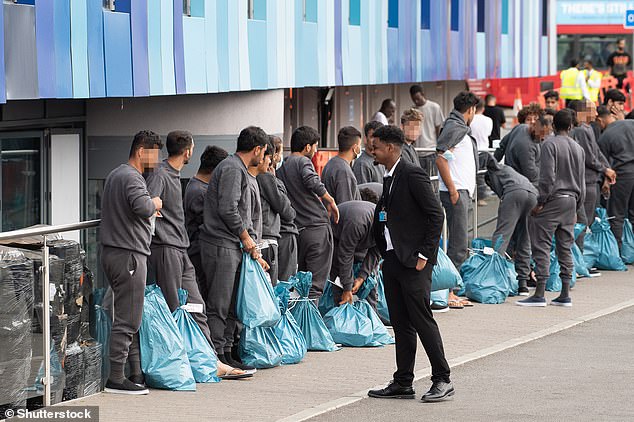
Young male asylum seekers at the Atrium Hotel in Feltham next to London Heathrow
Hotel Stays
Although the proportion of asylum seekers housed in hotels is falling, over a third – 37 per cent –were given a hotel room last year.
In London, the South-East and the East of England, the share was more than 60 per cent.
How much does this cost? The Bell in Epping, Essex, is probably the best known hotel given over to asylum seekers – and has been the focus of protests in recent weeks after allegations of a sexual assault.
This is – or was – a three-star hotel with banqueting facilities. Paying guests were able to make use of free wifi, a bar, restaurant and garden and terrace.
Today, there is no way of establishing the cost of a night at the Bell. Booking.com just says ‘sold out’.
But similar three-star hotels in the area, such as the New Boar, near Theydon Bois, and Mulberry House, Ongar, are advertising rooms in coming days at £103 and £95 per night respectively.
The Home Office spent £2.1 billion on hotel accommodation in the 12 months to March.
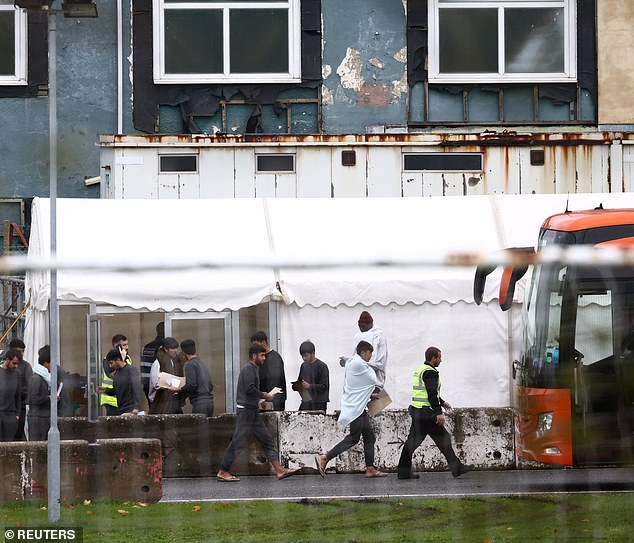
Although the proportion of asylum seekers housed in hotels is falling, over a third – 37 per cent –were given a hotel room last year
Meals
Asylum seekers receive a standard £49.18 per person per week to help them afford food and other basics. If their accommodation provides meals – and many asylum hotels offer full-board – this is cut to £9.95 per person.
If that doesn’t sound a lot, asylum seekers can also access food banks at no cost. Some food banks are dedicated to asylum seekers.
In Oxfordshire, for example, the charity Asylum Welcome operates a food bank offering fresh produce five days a week, plus toiletries and other essentials. This is partly funded by taxpayers: £672,000 out of its income of £1.72 million last year came from ‘statutory grants and contracts’ provided by Oxfordshire County Council and a number of district councils.
Over in Cambridge, the city council is offering free cooking lessons. These are provided under the city’s migrant resettlement grants, which give up to £30,000 to projects helping refugees and ‘people with experience of seeking asylum who live in Cambridge’. The council has handed out £250,000 of such grants since the scheme began in 2022.

Asylum seekers can also access food banks at no cost. Some food banks are dedicated to asylum seekers
Health
If most healthcare is available free at the point of delivery in this country, the majority of us still face charges for dental care, prescription medicines, eye tests, glasses, contact lenses and so on.
Asylum seekers, however, are handed HC2 certificates – created for low-income patients – which give them exemption from paying most of these charges.
While HC2 certificates are available to some UK citizens, a freedom of information request has revealed that of the 1.56 million issued in the past five years, 920,000 – which is to say nearly two-thirds – of them were given to asylum seekers.
Some asylum seekers – such as those undergoing cancer treatment or with hair loss caused by alopecia – even qualify for free wigs, from a basic one with artificial hair costing £80.13 to one crafted from real human hair costing £310.55.
Meanwhile, locals in Epping told the Daily Mail that a mobile dental unit visited asylum hotel The Bell, pointing to their own trouble in finding an NHS dentist.
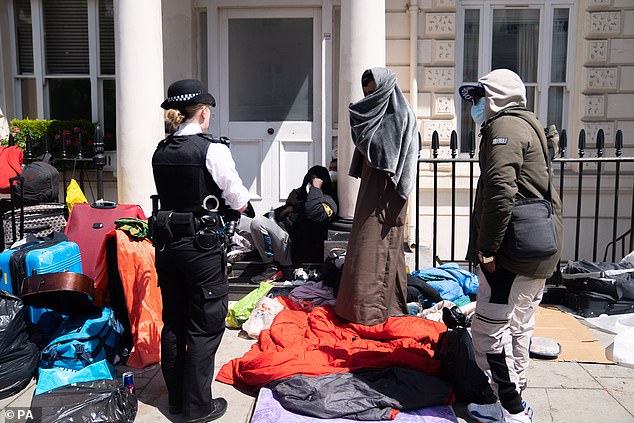
Asylum seekers are handed HC2 certificates – created for low-income patients – which give them exemption from paying most of these charges
Education
While our students rack up thousands of pounds worth of debt, 80 British universities – around half – offer bursaries, scholarships and fee waivers to asylum seekers.
According to a list compiled by Student Action for Refugees, migrants can study free at Cambridge University under the Rowan Williams scholarship, named after the former Archbishop of Canterbury.
Two Oxford colleges offer the chance for asylum seekers to take masters courses with all costs covered.
Aston University in Birmingham offers to waive fees and pay £25,000 of living costs.
Others offering to waive fees for asylum seekers and, in some cases, pay towards living costs as well, include the Universities of Bath, Bristol, Edinburgh, Essex,
Durham, Glasgow, Leeds, Leicester, Manchester and Nottingham, and Imperial College in London.
The cost for those born here, meanwhile, grows ever steeper – tuition fees for the coming academic year will rise from £9,250 to £9,535.
International students who come to Britain – legally – often pay fees exceeding £30,000 per year.
In Richmond, south-west London, the council offers asylum seekers discounted Spanish or French lessons.
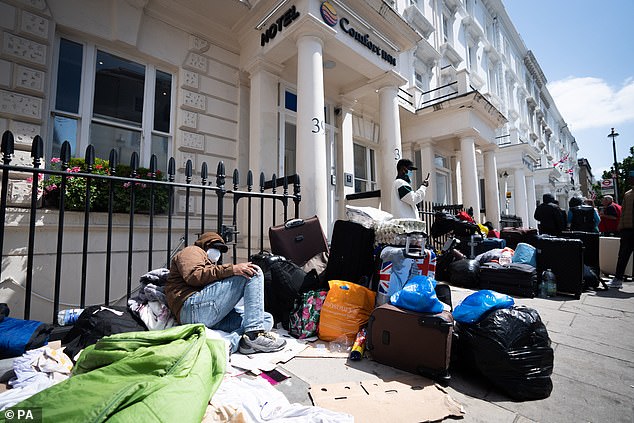
Two Oxford colleges offer the chance for asylum seekers to take masters courses with all costs covered
Transport
Some parts of the country offer transport to asylum seekers.
In Newcastle upon Tyne there is free bus and Metro travel for them under the city’s Just the Ticket scheme.
A pilot scheme in Oxford last year granted free bus travel to 275 asylum seekers.
From next year, asylum seekers in Scotland will be given free bus passes courtesy of the over-spending Scottish government.
The HC2 certificate mentioned earlier also entitles them to free travel so that they can seek treatment using the ‘cheapest suitable mode of transport for your circumstances’.
Several councils are offering free driving lessons to migrants.
Conservative-led Staffordshire Council spent £18,000 and Kent County Council £20,000 on them last year alone.
Bracknell Forest Council in Berkshire offers migrants £300-worth of driving lessons plus £125 for a driving test.

In Newcastle upon Tyne there is free bus and Metro travel for them under the city’s Just the Ticket scheme
Leisure
Bristol City Council has offered asylum seeker trips to watch football games at Bristol City and Bristol Rovers and matches at Gloucestershire County Cricket Club – all courtesy of government funding.
Croydon Council in south London spent £6,900 on courses, such as one teaching ‘DJ skills’.
West Sussex County Council spent £334 buying Sony PlayStation consoles for asylum seekers and £496 on yoga sessions. In the west London borough of Richmond, asylum seekers are handed a ‘Richmond Card’, which offers free swimming, group exercise classes and gym sessions.
Local residents on low incomes can also apply for the Richmond Cards but, unlike the migrants, they have to pay £30 per month or £300 a year if paid in a lump sum.
In Calderdale, West Yorkshire, asylum seekers are being offered £15 off a massage.
In nearby Bradford, they can get discounted tickets at the Imax cinema.
Wandsworth council in south-west London even offers a 50 per cent discount on weddings at the town hall.
Rotherham council, meanwhile, is offering asylum seekers access to the ‘Rothercard’ to help low-earning migrant families with living costs. At Rother Valley Country Park’s three lakes they get 30 per cent off dinghy hire, cutting the cost of a 90-minute rental from £20.70 to £14.80.
Birmingham City Council – which recently went bust and increased council tax by 7.5 per cent – is handing out Passport to Leisure cards which offer 25 per cent discounts for lessons in golf, martial arts, trampolining, swimming and gymnastics.
The card, normally available to full-time students and residents over 60, also gives discounts on tickets to shows at the Birmingham Hippodrome.
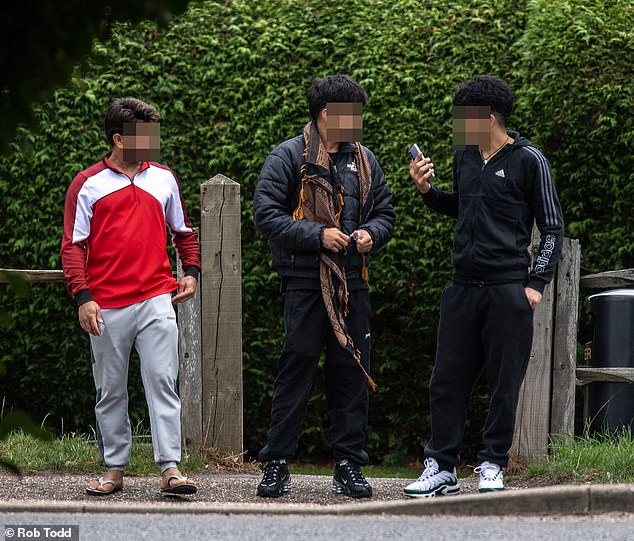
Bristol City Council has offered asylum seeker trips to watch football games at Bristol City and Bristol Rovers and matches at Gloucestershire County Cricket Club – all courtesy of government funding
Consumer Goods
A freedom of information request at the start of the year revealed that the Home Office has been spending £3,600 a day providing new clothes for migrants as soon as they land – illegally.
The ‘clothing packs’ consist of underwear, socks, T-shirt, trousers, a sweatshirt plus trainers or other footwear. In winter a coat, hat and gloves are added.
On occasions, the Home Office admitted, migrants have been handed a basic mobile phone. And there are free smartphones on offer to some thanks to the Leeds Migration Partnership, which is supported financially by the city council.
After Reform took control of Kent County Council in May’s local elections, the party established that the previous administration had spent £24,000 paying for migrants’ television licences, trips to the cinema and crazy golf – and even hair extensions.
It also covered spending sprees at JD Sports and PC World.
The largesse doesn’t even stop when failed asylum seekers are eventually – often after many years of appeals – deported.
A Home Office fact sheet issued in 2021 states that ‘all individuals in immigration removal centres are provided with a mobile phone’.
Why can’t they use official landlines if they need to contact a lawyer or family member?
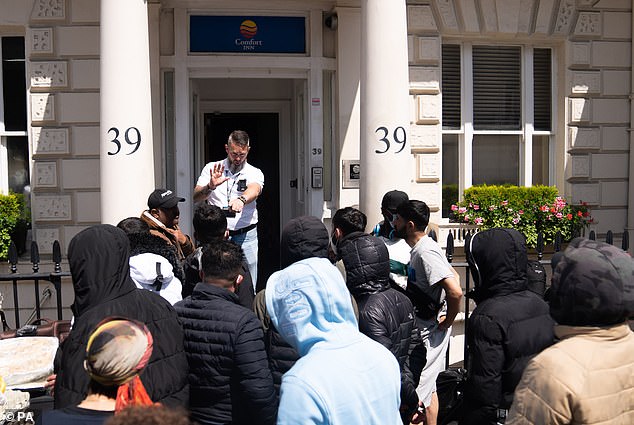
A freedom of information request at the start of the year revealed that the Home Office has been spending £3,600 a day providing new clothes for migrants as soon as they land – illegally
Legal Aid
For most of us the legal system is an expensive quagmire. Lawyers’ fees can bankrupt those brave enough to take out – or try to defend – a case. But it is a different story if you are a migrant wanting to challenge a decision to reject your asylum application.
According to the Migration Watch think tank, taxpayers have paid £135 million in legal aid for asylum cases since 2018 – much of it to fight on behalf of asylum seekers who have already had their cases rejected by the Home Office, often more than once.
Among the appeals the taxpayer has helped to fund is that of convicted rapist Ibrahim Ahmadi.
Lawyers successfully blocked his deportation to his native Afghanistan in 2022 on the basis that the Taliban, who now run the country, might – to use the extraordinary words of Judge Hugo Norton-Taylor – take a ‘dim view’ of sex offenders.












